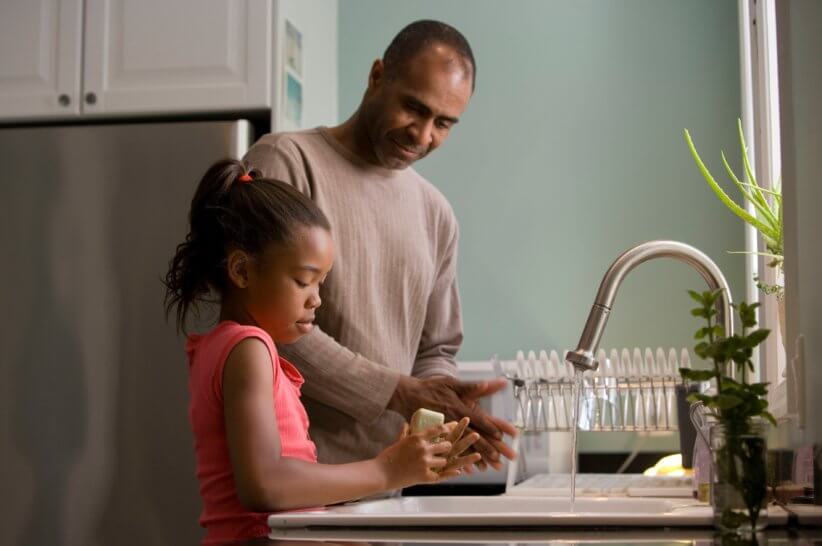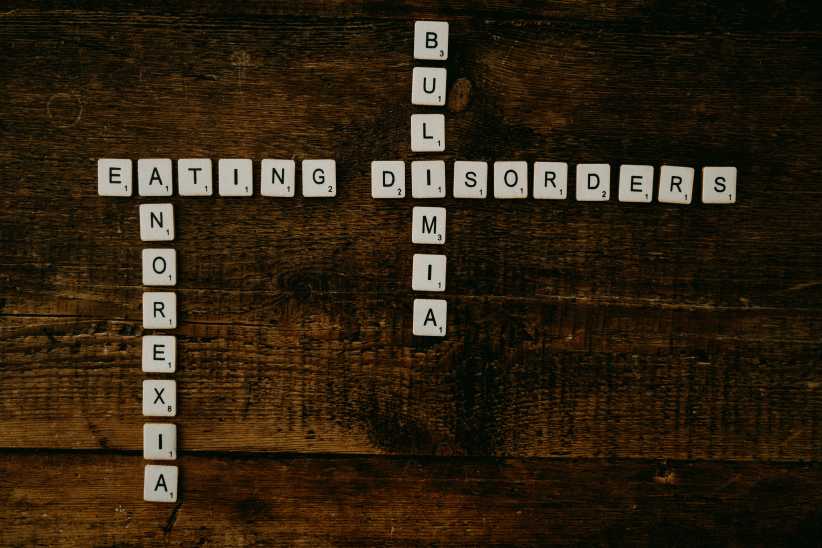
Talking to kids about the Coronavirus can be complicated. It’s likely they’ve seen and heard a lot of information from friends and the media. They might be afraid, stressed or worried. If your children are already prone to anxiety, you want to calm their fears. However, you also want to be honest and make sure they’re practicing good hygiene behavior. So how do start the conversation?
To help you navigate this difficult topic, we sat down with Dr. Rebecca Berry, PhD, a professor at NYU Langone and an expert in the field of child and adolescent psychiatry. She provides her advice on talking to children about the Coronavirus and explains why the most important thing is to stay positive and solutions-focused.
1. Have the Conversation
It’s worth sitting down and speaking to your children about the Coronavirus. Dr. Berry explains, “At this point, it’s probably important for families to have a conversation.” That being said, she adds, “I don’t want families to think this has to be a big discussion. In fact, this really can be just a quick discussion — a time to listen, to hear out concerns and maybe even to filter out myths that are being thrown out there and correct those with some helpful tidbits of information.” (Think bullet points). “Here’s what we know, here’s what we’re doing, here’s how you emphasize good hygiene.”
2. Control the Dialogue, and Don’t Provide Too Much Information
As the Coronavirus develops, there are daily if not hourly updates. However, you don’t have to share those updates with your kids. In fact, Dr. Berry explains, “Sometimes kids having too many updates about things makes it seem that some impending doom is happening.” Make sure that, for kids, parents, rather than the media are controlling the dialogue. Dr. Berry says, “Sometimes, with certain kids, less is more because a lot of times media content is sensationalized or exaggerated or repeated in such a way that brings about a lot of fear for people.”
She adds, “Providing too much information can be harmful in some cases, especially when it’s not paired with brainstorming solutions.” That is why, “It’s important for parents to control the message and the dialogue as much as possible.” So what exactly should that message be?
3. Make the Message Positive and Solutions-Focused
When talking to kids about the Coronavirus, make sure information always comes alongside some type of proactive action. Focus on the things that the family is doing (such as washing hands) as well as the things the community and the government are doing and explain how those things are going to keep people safe.
Dr. Berry says, “Especially for younger kids, that proactive action and some hope is going to be important. Because it makes the child feel that they have a way to manage uncertain times.”
Still, you don’t want to provide an unrealistic level of hope. Dr. Berry doesn’t encourage saying things like, “oh this is nothing, we’re going to be over it in a week.” However, you don’t want to be too negative because, she says, “a child doesn’t know what to do with that.”
The most important thing is that they know there is, “some movement toward a solution both on the family level, community level and national level.”
4. Pitch the Conversation at an Appropriate Level
Dr. Berry says that, when talking to kids about the Coronavirus, “The level of detail or honesty that a parent gives their child will depend upon their age, temperament, maturity and cognitive ability.” Dr. Berry adds, “The parent or guardian should have a sense already of who their kids are and the amount of information to give to them.”
In order to pitch the conversation at an appropriate level, you might also start by asking the children what they already know and what they’ve heard about the Coronavirus. This would also be an opportunity to correct any misconceptions.
The level of the conversation should also depend on, according to Dr. Berry, “whether or not the child is coming in with a preexisting anxiety condition that might make them more likely to catastrophize what might happen.”
5. Listen and Validate
Especially if your kids are already prone to anxiety, Dr. Berry explains that parents should first “Hear out the child and the concerns that they have.” More importantly, do not dismiss those fears. Instead, Dr. Berry encourages parents to practice something she calls, “validation.” She says parents should maintain a “matter-of-fact and calm” voice and say something like: “Listen, I understand that you’re hearing a lot of things about what’s going on and I can tell that you’re worried about it.”
Then, refocus them onto your solutions message. Say something like “[We] are here to make sure that you are protected and safe and that as a family we’re doing everything we can to keep each other healthy. Let us know if you want to talk more about this.”
After that, it can be helpful to encourage kids to refocus on their normal lives, activities and routines. This is what Dr. Berry recommends for any worries, whether they are related to the Coronavirus, climate change, or other catastrophes.
6. Focus on What They Can Do and What Others are Doing to Keep Them Safe
Remind children that it’s not their responsibility to worry about the virus. It’s only their job to make sure they are maintaining safe hygiene practices and continuing to wash their hands. According to Dr. Berry, “younger kids follow rules quite well,” so it’s likely that if you tell them to wash their hands, they will actually do it. If you want to go a step further, Dr. Berry explains that you can turn hand-washing into a game for younger kids. Encourage them to sing Happy Birthday twice while washing their hands, then “make it into a fun game for younger kids, in terms of maybe seeing how loud they can sing or how much soap they can get.
Then explain that others are also working to keep them safe. Dr. Berry says, “Especially with kids, we have to focus on what’s being done on many levels, (both on the familial level, the community level, even the national level) to keep them safe.” Dr. Berry encourages telling children “Here’s what our family is doing, here’s what the scientists are doing, and our country [is doing].”
Parents should remind kids, that “the people in big positions, like the scientists are figuring out a plan.” It’s those people’s jobs to worry, not the children’s.
Ultimately, when talking to kids about the Coronavirus, emphasize the solutions, reemphasize what everyone is doing to prepare, and encourage them to keep living their daily lives.
For more advice on navigating the Coronavirus outbreak, see our travel tips, our recipe for DIY hand sanitizer, and more.























